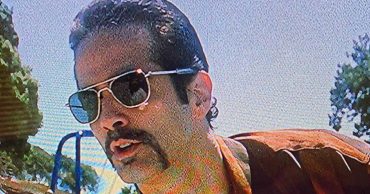We all have our dreams and aspirations, which is part of being human. Furthermore, we humans are explorers and inventors; we are always looking for a way to better ourselves. Moreover, if we aren’t doing something to better ourselves, we try to tell stories of our past success and conquests. That’s usually a way to inspire those who are yet to achieve notable success in their lives. In that regard, films happen to be one of the most popular modern ways of telling stories to the masses. While it’s not easy directing your film and getting it out there, for those who have manage to crack it, the sky is always the limit. It’s with that in mind that Wesley Snipes Wanted To Make a Black Panther Movie in The ’90s. His would have been a story that no one had shared it before through the film of Hollywood.
One of the biggest changes in Wesley Sniper’s career came about when his appearance in Marvel’s Blade, contributed to its success on the big screen. However, that’s not what was in his heart, for him, he always wanted to star on the throne of Wakada Kingdom. After starring in multiple films, where he proved his talent in action chops and comedy, he finally established himself to a position where he could call his own shots. That included making a Black Panther movie, which is about an iconic character that majority of the world doesn’t know about. However, Snipe was sure that communities in places such as where he grew up in would totally love the character.
He recalls that from the early 1970s, when William Marshall played Blacula, and it caused a thrill among the black and Hispanic communities, he never doubted that the audience wouldn’t give Black Panther the same reception. Initially, studios didn’t understand what the actor-producer wanted, with many thinking he wanted a film highlighting the legend of a Black Panther Party. On one occasion, one director pitched him a script about a period of the civil rights movement, but what Snipes wanted was a film fully highlighting the Majesty of Africa, earlier in the millennia.
Snipe said that, the Black Panther was resonated with Snipe because it went against the stenotype that depicts Africa and it Kingdoms in a dark light. It gave a special cultural and social significance to him, something that both the black and white community hadn’t seen or experienced before in their lives or on the big screens. He envisioned that with the limited scope and roles for black actors in the present films, the Black Panther would have helped to highlight the African history on the big screens. He continues to say that there aren’t many people who are aware of the glorious age of African history, of African Empires such as Mansa Musa. Those great African men managed to amass great wealth that exceeded what some of the wealthiest men of the present day have, he added. To snipe, that was attractive, and he thought that he should share that history with those who don’t have a clue about it.
While he searched for scriptwriters to bring his thoughts to life, he faced the greatest challenge. None of them thought his idea would work at the time. John Singleton for example thought that they should take T’Chala from Africa to the U.S. and have him participate in the civil rights movement. While Snipes admires Singleton’s talent, he didn’t think that was the route the film should take. Eventually, time when by and the search for a writer and director faded. Snipe ended up as a star in Blade, 1998. He thought both Black Panther and Blade had something in common; black nobility. If he couldn’t star in Kingdom of Wakanda, Hidden Kingdom in Africa, or even Vibranium, then a Black Vampire would work just fine. Fast forward, 20 years later, and we have a Black Panther ready to debut on February 16, 2018.
 Follow Us
Follow Us




